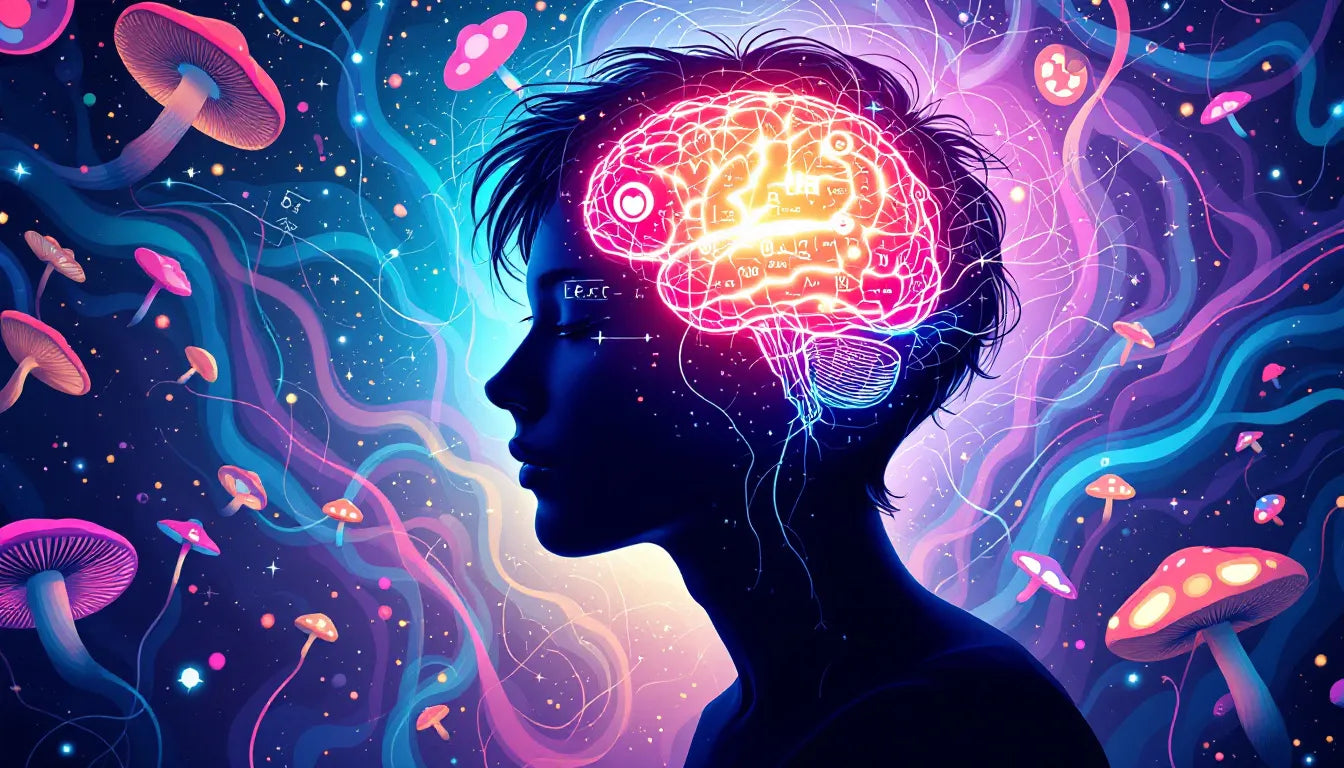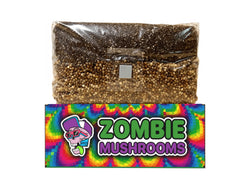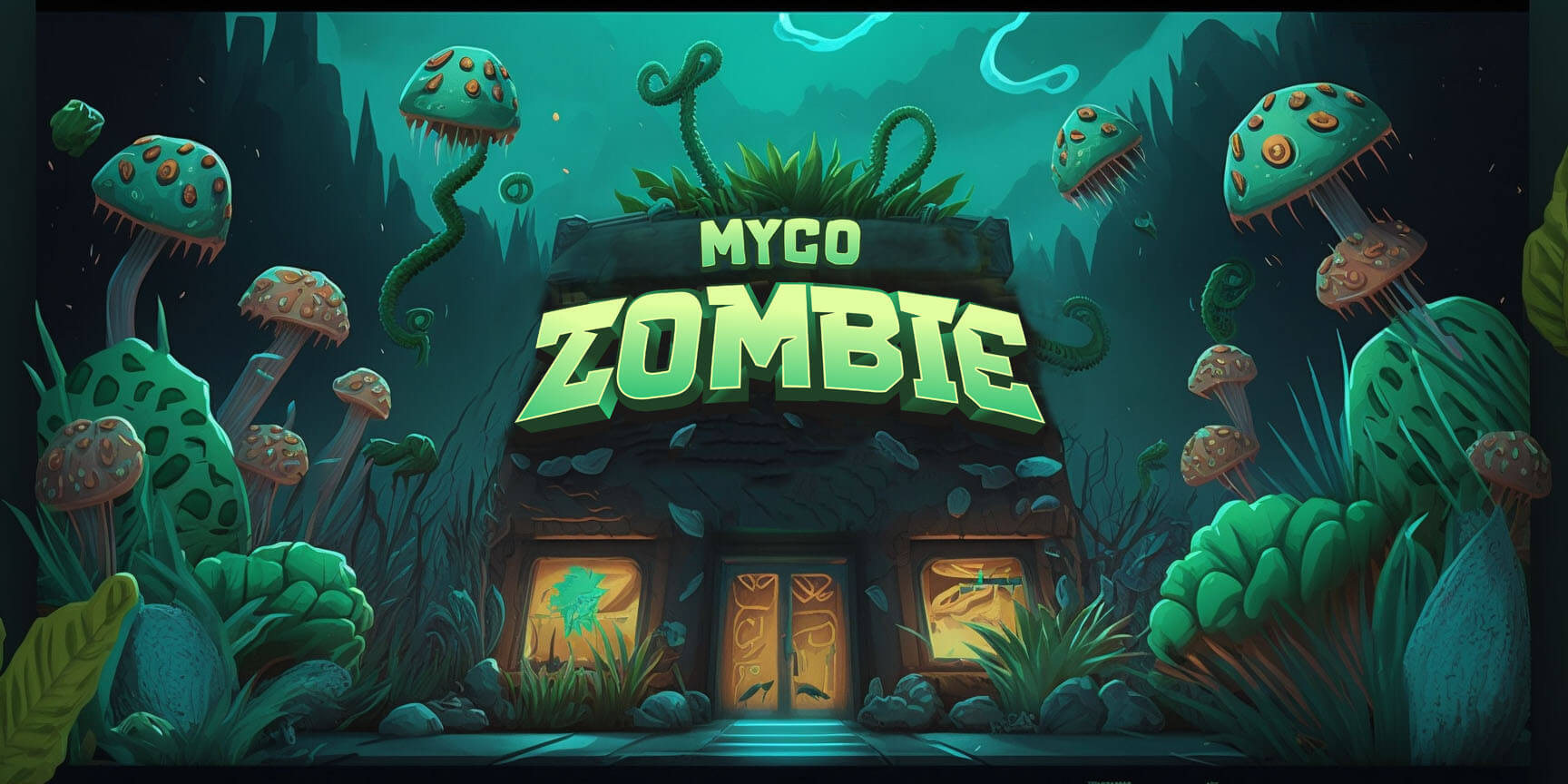- A placebo-controlled study found that microdosing benefits may largely be due to psychological expectation rather than pharmacological effects.
- Research suggests that psychedelics in larger therapeutic doses may have neuroplasticity benefits, but microdosing effects are still debated.
- Many microdosing users claim improvements in mood, creativity, and focus, but clinical trials struggle to confirm these effects beyond the placebo effect.
- Brain chemistry studies show that expectations alone can trigger dopamine and serotonin release, potentially mimicking the effects of psychedelics.
- Future research with advanced imaging and biomarker analysis could finally determine whether microdosing has real physiological benefits.
What Is Psychedelic Microdosing?
Psychedelic microdosing involves consuming very small, sub-perceptual amounts of psychedelics—most commonly LSD or psilocybin. These doses are typically about 5-10% of a standard recreational trip dose, meaning they don’t induce hallucinations or intense psychedelic experiences. Instead, users report subtle effects that influence mood, cognition, and overall well-being.
Microdosers typically follow regimens such as the Fadiman Protocol, which involves taking a microdose once every three days, or the Stamets Stack, which combines psilocybin with other nootropics like lion’s mane mushroom and niacin to promote neuroplasticity.
The practice has gained popularity among professionals, creatives, and wellness enthusiasts who seek potential improvements in focus, mood, and emotional resilience. Many point to anecdotal benefits, but the scientific community remains divided on whether microdosing works beyond the placebo effect.

Reported Benefits of Microdosing
Advocates of psychedelic microdosing claim a variety of mental and emotional benefits, including
Enhanced Creativity and Problem-Solving
Many users report an increased ability to think outside the box, solve problems creatively, and connect ideas in novel ways. Silicon Valley entrepreneurs, artists, and writers have been early adopters of microdosing, citing its potential to enhance divergent thinking.
Increased Focus and Productivity
Microdosers often describe improved concentration and motivation. Unlike full psychedelic doses, which can be disruptive, microdosing is said to help users enter flow states, making it attractive for work environments and high-performance productivity.
Reduced Anxiety and Depression
Some users believe that microdosing psychedelics helps alleviate symptoms of anxiety and depression. Certain small-scale studies suggest a connection between psychedelic substances and neuroplasticity, which could influence mood regulation.
Improved Emotional Balance and Social Interactions
Microdosing proponents say they feel more emotionally stable, empathetic, and connected to others. Some compare its effects to a very mild version of antidepressants, claiming it fosters a more positive outlook on life.
Despite these reported benefits, skepticism remains due to the strong possibility that they may be influenced by user expectations rather than the physiological effects of microdosing.

Understanding the Placebo Effect in Psychedelic Microdosing
The placebo effect occurs when a person experiences real symptom relief or improvements simply because they believe they are taking an effective treatment. In medical studies, placebo-controlled trials compare real treatments to inactive substances (placebos) to determine if a treatment has effects beyond expectations.
How Does the Placebo Effect Work?
- Neurochemical Release - When people expect positive benefits, the brain releases dopamine and serotonin—similar to what psychedelics influence at full doses.
- Mind-Body Connection - Psychological belief in treatment can lead to physiological changes, improving mood, focus, and energy levels.
- Expectation Shapes Reality - If a person strongly believes microdosing will work, they may subconsciously reinforce improvements in daily behavior.
This makes microdosing research particularly tricky because psychedelic substances are already associated with powerful psychological effects. Determining whether microdosing benefits are real or placebo-driven requires highly controlled scientific studies.
Key Study: Findings on the Role of the Placebo Effect in Microdosing
The Self-Blinding Microdose Study (Szigeti et al., 2021)
This study used a self-blinding technique where participants either took real microdoses or placebos without knowing which they received. The results showed
- Both the microdose and placebo groups reported almost identical improvements.
- There was no strong evidence that microdosing provided unique benefits beyond psychological expectations.
Controlled Trial on LSD Microdosing (Hutten et al., 2020)
This study examined whether small LSD doses had measurable effects on cognition and mood. Findings included
- Minor cognitive effects detected, but mood improvements were also seen in the placebo group.
- Researchers concluded that many subjective benefits could be due to the placebo effect rather than the drug itself.
These findings highlight a fundamental question: If microdosing makes people feel better, does it matter whether it’s due to actual drug effects or psychological belief?

Neuroscience Behind Placebo: Can the Brain Trick Itself?
The placebo effect isn’t just a mental illusion—it has a biological basis. Studies show that belief in a treatment can trigger real biochemical changes in the brain
- Dopamine and Reward System Activation - Studies show increased dopamine levels in people expecting positive outcomes, which can improve motivation and pleasure.
- Serotonin Release - Expectation alone can elevate serotonin levels, influencing mood in a way similar to antidepressants and psychedelics.
- Neuroplasticity Changes - Some researchers believe that sustained placebo effects may promote brain plasticity over time, reinforcing positive behaviors.
This supports the argument that microdosing benefits, whether driven by psychedelics or placebo, still result in tangible psychological improvements.
Debate: Placebo Effect vs. Genuine Benefits
The central debate over psychedelic microdosing is whether its effects stem from pharmacological changes or psychological expectation.
Arguments Supporting Pharmacological Benefits
- Psychedelics at larger doses have been shown to promote neurogenesis and neuroplasticity (Olson, 2018).
- Some studies point to measurable brain activity changes even at microscopic doses.
- Long-term anecdotal reports indicate that microdosing effects are consistent over time, which challenges the idea that they are purely placebo-driven.
Arguments Supporting the Placebo Hypothesis
- Placebo-controlled trials show similar effects between microdosers and placebo users, suggesting that expectation plays a larger role.
- Many reported benefits, such as mood enhancement and increased creativity, are highly susceptible to suggestion.
- If psychedelics have profound effects at microdoses, more significant biomarkers (brain scans, neurotransmitter levels) should be detected in studies—but conclusive evidence is still lacking.
Until more rigorous, large-scale studies are conducted, the true nature of microdosing benefits remains a matter of debate.

Anecdotal Evidence vs. Clinical Research
The divide between scientific skepticism and microdosing enthusiasts highlights a larger issue: Should personal experiences overrule clinical findings?
- Pro-microdosing stance: Many people feel substantial benefits, even if science has yet to catch up.
- Scientific stance: Without controlled evidence, subjective benefits could be nothing more than placebo effects.
- Balanced perspective: Even if microdosing "works" only due to expectation, the benefits users experience in daily life may still be meaningful.
Regardless, the anecdotal popularity of microdosing ensures that research will continue exploring its effects.

Future of Psychedelic Microdosing Research
As psychedelic legalization expands, more rigorous microdosing studies can be conducted. Future breakthroughs may include
- Brain Imaging Studies - Advanced fMRI and EEG scans could track microdosing’s actual neurobiological effects.
- Standardized Microdosing Protocols - Future research may establish scientifically backed "optimal dosing" guidelines.
- Biochemical Testing - Blood and neurotransmitter tests can assess real physiological changes.
- Legalization Impact - Expanding psychedelic research in medical settings could clarify microdosing’s role in mental health treatments.
For now, the microdosing conversation continues to evolve between personal experience and scientific controversy.
Does Microdosing Really Work?
The answer depends on how we define “work.” If success is measured by scientific proof, the evidence is still inconclusive, with strong indications that the placebo effect plays a major role. However, if success is measured by how microdosing makes individuals feel in their lives, then for many, it undeniably works—placebo or not.
Whether through genuine neurochemical impact or psychological belief, the key takeaway is the same: If microdosing helps you live better, does it really matter why?
Citations
- Hutten, N., Mason, N. L., Dolder, P. C., & Kuypers, K. P. (2020). Mood and cognition after administration of low LSD doses in healthy volunteers: A placebo-controlled study. Psychopharmacology, 237(5), 1521-1532.
- Olson, D. E. (2018). Psychoplastogens: A promising class of plasticity-promoting neurotherapeutics. Journal of Experimental Neuroscience, 12, 1-4.
- Szigeti, B., Kartner, L., Blemings, A., Rosas, F. E., Feilding, A., Nutt, D. J., & Carhart-Harris, R. L. (2021). Self-blinding microdose trial indicates no strong evidence for benefits, but the placebo effect is strong. eLife, 10, e62878.




